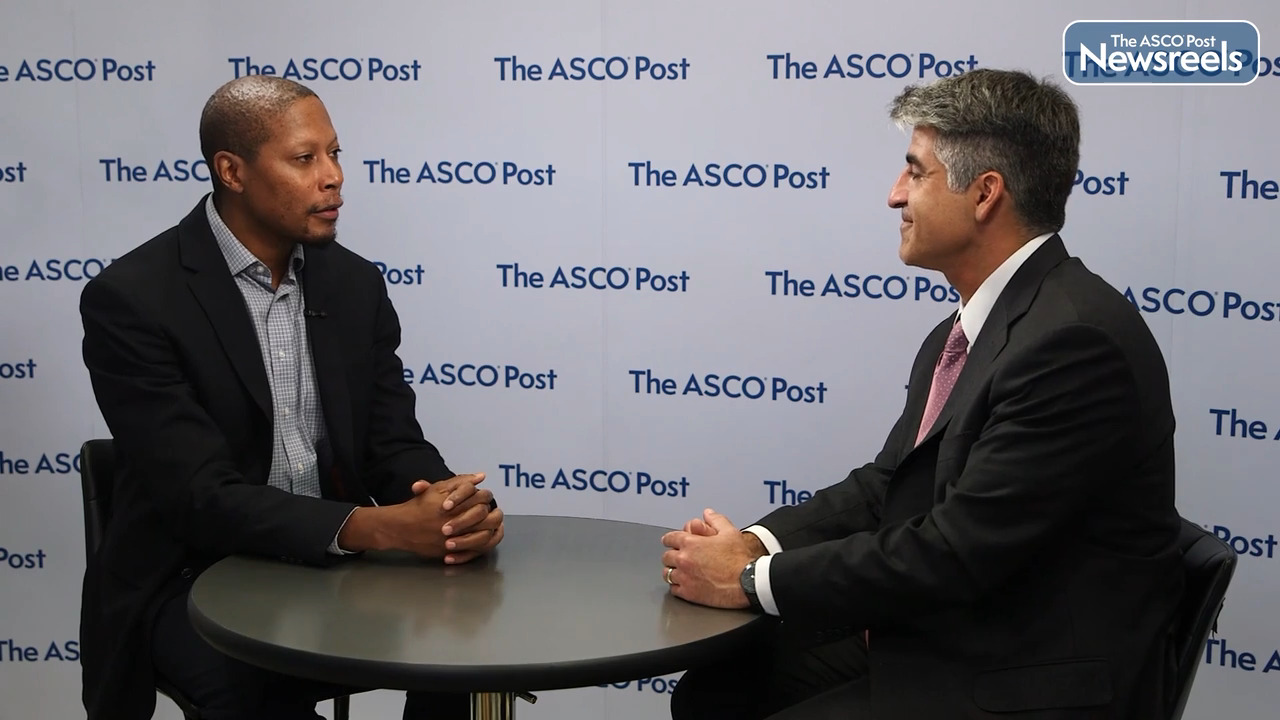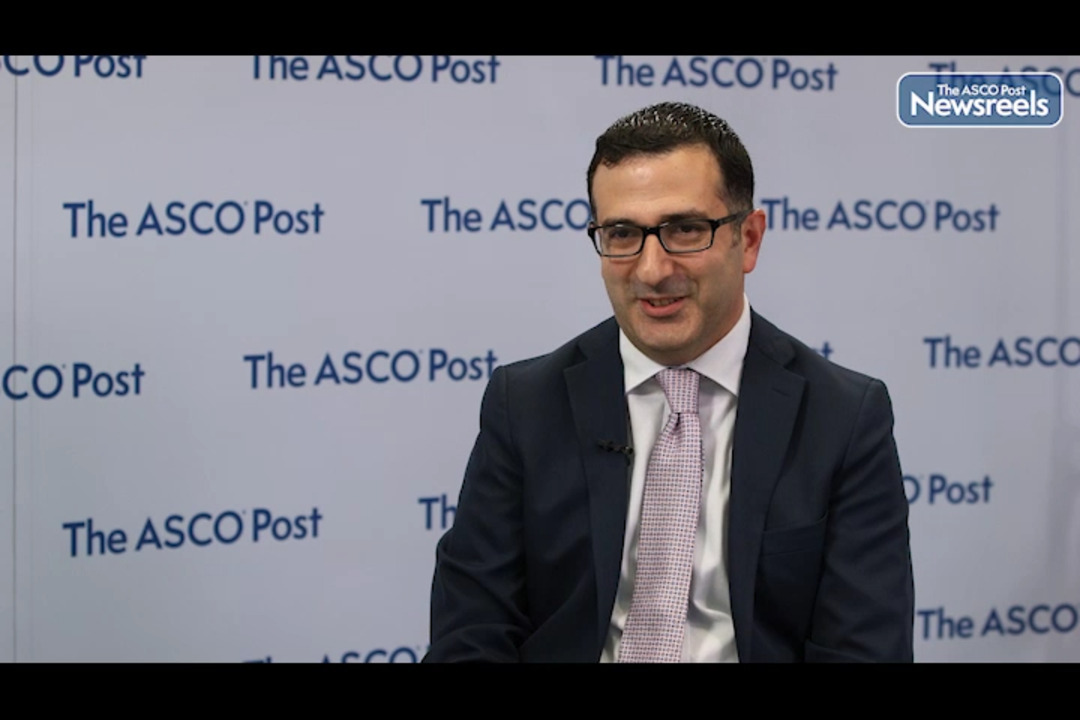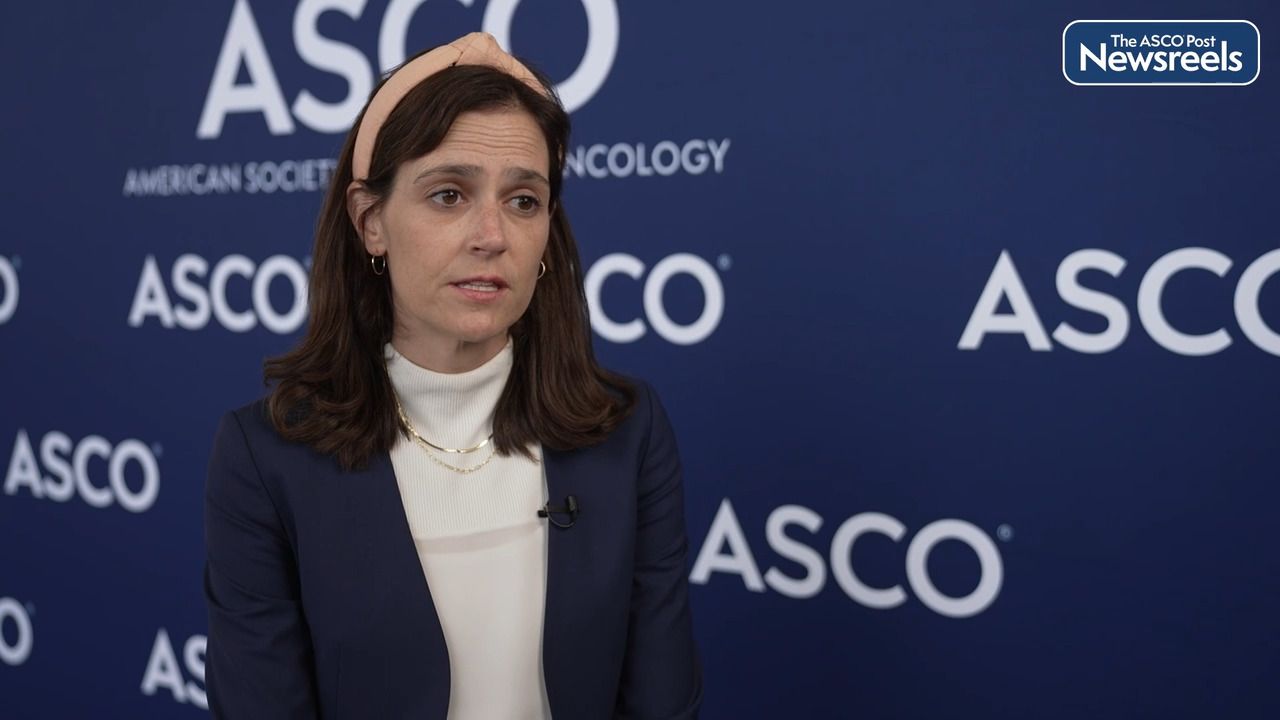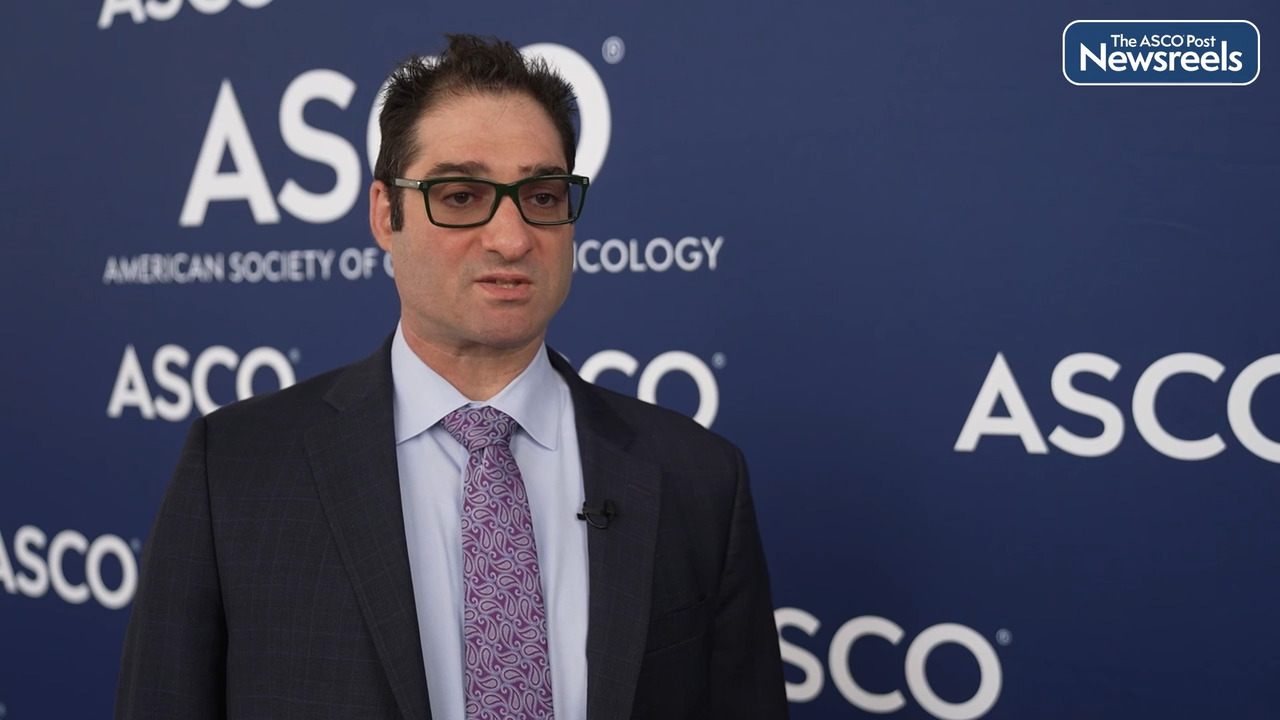LaQuisa C. Hill, MD, on Relapsed or Refractory T-ALL: New Data on CD5 CAR T Cells
2023 ASCO Annual Meeting
LaQuisa C. Hill, MD, of Baylor College of Medicine, Houston Methodist Hospital, discusses study findings showing that CD5 chimeric antigen receptor (CAR) T cells may induce clinical responses in heavily treated patients with relapsed or refractory T-cell acute lymphoblastic leukemia. Manufacturing CD5 CAR T cells with tyrosine kinase inhibitors seemed to improve their potency and antitumor activity (Abstract 7002).
Transcript
Disclaimer: This video transcript has not been proofread or edited and may contain errors.
LaQuisa C. Hill, MD:
The purpose of this study was a phase one clinical trial that was a dose escalation study using autologous CD5 CAR T for treatment of patients with relapse/ refractory T-cell ALL. In the initial cohort, we used our standard manufacturing practice that was overall very well-tolerated. However, in the eight patients initially treated, there were minimal responses seen with only one patient achieving a MRD positive remission.
We subsequently analyzed the cell products and determined that the CAR T cells had a significantly exhausted phenotype as a result of chronic CAR signaling. Therefore, we implemented a manufacturing change to include the use of TKI inhibitors dasatinib and ibrutinib in order to inhibit the chronic CAR signaling and saw a significant improvement in the naive T-cell repertoire and significant reduction in the number of exhausted T-cells in the final product. In the next cohort, we treated a total of seven patients, all manufactured using the TKI inhibition. And amongst those patients there was a total of four MRD negative remissions achieved out of seven patients treated.
The CAR T cell was well-tolerated in terms of CRS and ICANS. No grade-three events occurred. However, there was an increased risk of, or observation of, EBV reactivation with two patients developing PTLD. Currently it is unclear of the direct relationship to the CD5 CAR T cells manufactured with TKI. However, we plan to continue vigilant monitoring for this unexpected side effect and have instituted mitigation plans utilizing prophylactic rituximab as well as ensuring that patients have EBV-specific virus T cells available in the event that EBV reactivation occurs.
Moving forward, we will continue to try and optimize the CAR T cell product both for efficacy and safety and are looking into alternative immune effector subsets, such as virus-specific T cells as the immune factor cell of choice, as well as considering use of third-party or off-the-shelf T cells from healthy donors.
Related Videos
The ASCO Post Staff
Tycel J. Phillips, MD, and Alex F. Herrera, MD, both of the City of Hope National Medical Center, discuss results from the SWOG S1826 study, which showed that nivolumab and AVD (doxorubicin, vinblastine, and dacarbazine) improved progression-free survival vs brentuximab vedotin plus AVD in patients with advanced-stage classical Hodgkin lymphoma. Longer follow-up is needed to assess overall survival and patient-reported outcomes. This trial may be a key step toward harmonizing the pediatric and adult treatment of advanced-stage disease (LBA4).
The ASCO Post Staff
Rana R. McKay, MD, of the University of California, San Diego, and Toni K. Choueiri, MD, of Dana-Farber Cancer Institute and Harvard Medical School, discuss results from the phase III CONTACT-03 study, showing that, for patients with metastatic renal cell carcinoma (RCC), adding the PD-L1 inhibitor atezolizumab to cabozantinib did not improve clinical outcomes compared with treatment with cabozantinib alone. In addition, higher toxicities were observed in the combination arm (Abstract LBA4500).
The ASCO Post Staff
Rami Manochakian, MD, of Mayo Clinic Florida, offers his perspective on the new phase III findings on osimertinib, a third-generation, central nervous system EGFR tyrosine kinase inhibitor, which demonstrated an unprecedented overall survival benefit for patients with EGFR-mutated, stage IB–IIIA non–small cell lung cancer (NSCLC) after complete tumor resection, with or without adjuvant chemotherapy (Abstract LBA3).
The ASCO Post Staff
Jennifer L. Crombie, MD, of Dana-Farber Cancer Institute, discusses the historically poor outcomes for patients with relapsed or refractory diffuse large B-cell lymphoma (DLBCL). Her study examined real-world data on the use of novel therapies in this population and found that outcomes with second- and third-line regimens of polatuzumab vedotin-piiq plus bendamustine and rituximab and tafasitamab plus lenalidomide remain suboptimal, with worse outcomes particularly after chimeric antigen receptor T-cell therapy (Abstract 7552).
The ASCO Post Staff
Jonathan W. Riess, MD, of the University of California, Davis Comprehensive Cancer Center, explores the findings of three important clinical trials in lung cancer treatment: whether to incorporate immune checkpoint inhibitors into the treatment of EGFR-mutated lung cancer, the importance of central nervous system activity in EGFR-mutant lung cancer, and new therapies for disease with EGFR exon 20 insertion.





